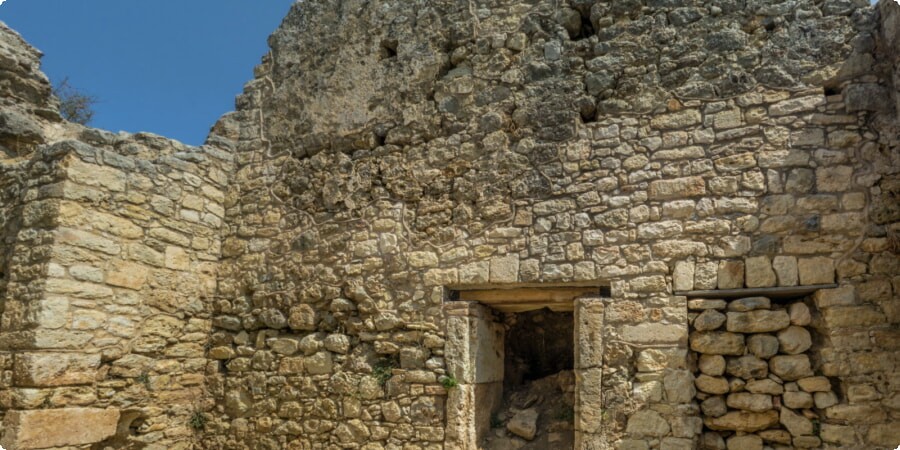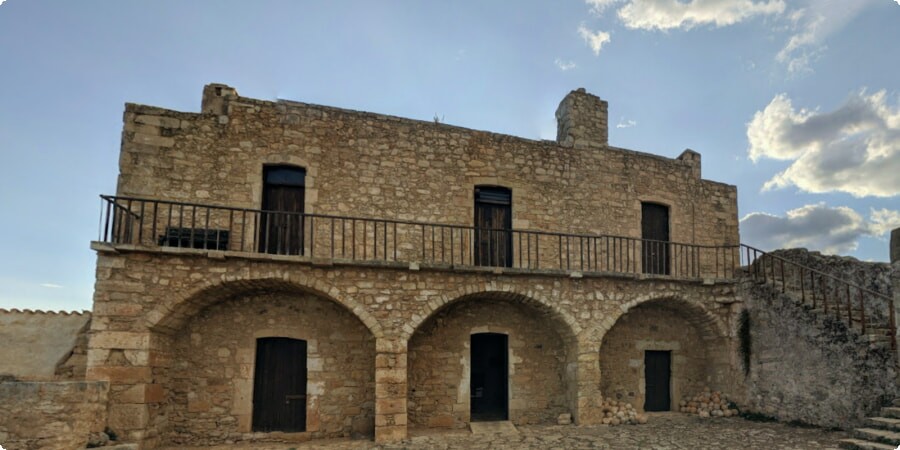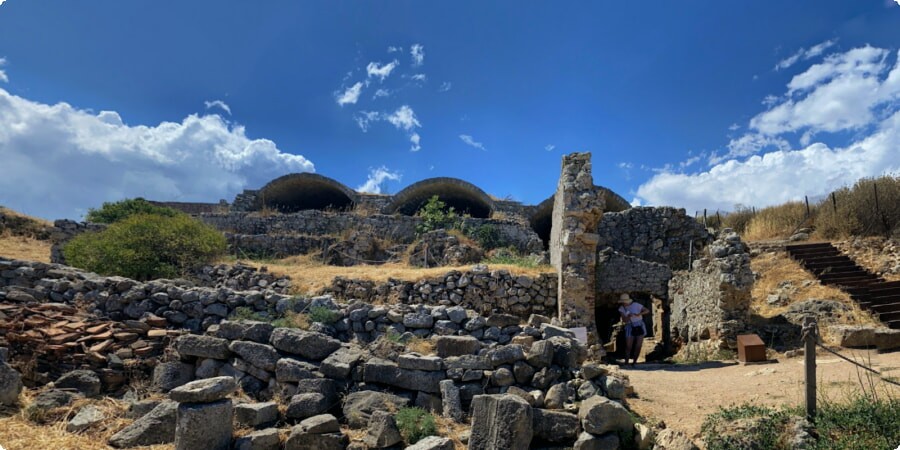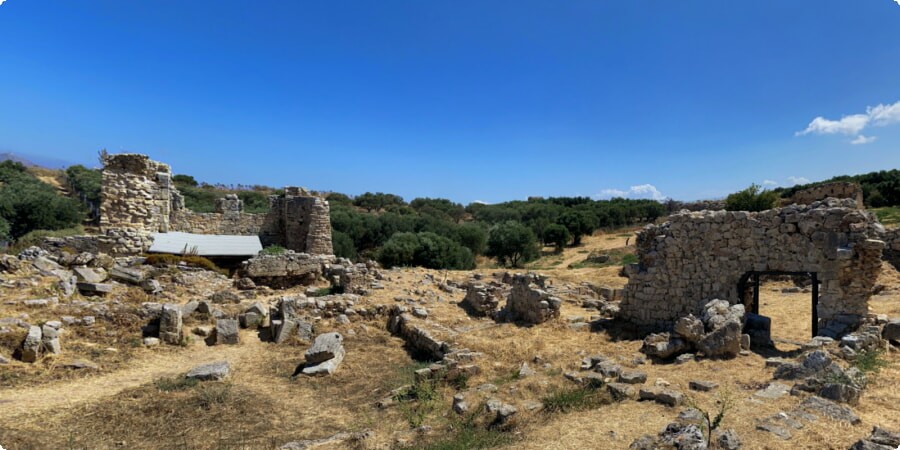Aptera Archaeological Site: Echoes of a Lost Civilization
Welcome to Aptera, an ancient archaeological site nestled in the picturesque hills of Crete, Greece. Aptera, whose name translates to "the most apt" or "the most excellent," holds the remnants of a once-flourishing city that offers a compelling glimpse into the distant past. As we delve into the mysteries of Aptera, we uncover not just the physical ruins but also the echoes of a lost civilization that shaped the history of this region.
Historical Background of Aptera
Located strategically on a hilltop overlooking Souda Bay, Aptera flourished as a significant city-state in ancient Crete. Its origins trace back to the Minoan period (approximately 2nd millennium BCE), making it one of the oldest continuously inhabited sites on the island. Over the centuries, Aptera grew in prominence, benefiting from its strategic location along trade routes that connected it with other major centers in the Aegean and beyond.
Throughout its history, Aptera experienced periods of prosperity and turmoil, reflecting the tumultuous nature of ancient Mediterranean civilizations. It was during the Hellenistic period (4th to 1st centuries BCE) that Aptera reached its peak, boasting impressive fortifications and public buildings that showcased its economic and cultural vitality.
Excavations and Discoveries
Excavations at Aptera have unearthed a treasure trove of archaeological finds that shed light on its rich history. Among the most notable discoveries are the well-preserved remains of public buildings, including a Roman cistern and a theater, offering insights into the city's civic life and cultural activities.
One of the most intriguing aspects of Aptera's archaeological site is its Roman-era necropolis, where elaborate tombs and funerary monuments have been unearthed, providing a glimpse into ancient burial customs and religious practices.

Artifacts discovered at Aptera, such as pottery, coins, and inscriptions, have not only helped archaeologists piece together the city's economic and social fabric but also provided clues to its interactions with other ancient civilizations. These discoveries continue to fuel scholarly debate and contribute to our understanding of Aptera's place in the ancient Mediterranean world.
For those planning to explore Aptera, it's advisable to book a car in Crete to facilitate easy access to the site and its surroundings. You can find reliable car rental options in Crete through Sol Rent A Car, ensuring a convenient and memorable journey through this historically rich region.
City Layout and Architectural Features
Aptera's city layout reflects its strategic and cultural importance in ancient Crete. Situated on a hilltop overlooking the fertile plains and the sea, Aptera was designed with both practicality and grandeur in mind.
Strategic Fortifications:
The city was fortified with impressive walls, towers, and gates, emphasizing its role as a defensive stronghold against invaders. These fortifications not only protected its inhabitants but also symbolized the city's strength and resilience.
Public Buildings:
Aptera boasted several notable public buildings, including a theater that once hosted performances and gatherings, providing a glimpse into the city's cultural life. The remains of Roman-era public baths and an agora (marketplace) highlight the city's bustling economic activities and social interactions.

Daily Life in Ancient Aptera
Social Structure:
Ancient Aptera was likely structured hierarchically, with an elite class of landowners and merchants exerting influence over political and economic affairs. The majority of the population would have been engaged in agriculture, trade, and artisanal crafts, contributing to the city's prosperity.
Cultural Practices:
The inhabitants of Aptera engaged in various cultural practices, including religious rituals honoring deities such as Artemis and Zeus. These practices were often intertwined with civic life, with temples and sanctuaries serving as focal points for communal gatherings and ceremonies.
Excavations and Discoveries
Excavations at Aptera have yielded a wealth of artifacts and structures that offer insights into the daily lives and beliefs of its ancient inhabitants. These discoveries include:
Roman Cistern:
One of the most significant finds at Aptera is a Roman cistern, a testament to the city's advanced engineering capabilities and its ability to manage water resources effectively.
Necropolis:
Aptera's necropolis, dating back to the Roman period, contains elaborate tombs and funerary monuments that provide clues about burial customs and religious beliefs. The intricate designs and inscriptions on these monuments offer glimpses into the social status and identities of the deceased.
For travelers planning to explore Aptera and other archaeological sites in Greece, booking a car rental can provide flexibility and convenience. Sol Rent A Car offers reliable car rental services in Greece, ensuring a seamless journey to discover the rich historical and cultural heritage of this ancient land.

Decline and Abandonment
Aptera's decline and eventual abandonment mark a poignant chapter in its history, reflecting the ebb and flow of ancient civilizations.
-
Historical Factors: By the 7th century CE, Aptera faced challenges from external invasions and internal conflicts, leading to its gradual decline. The strategic importance of the city diminished as trade routes shifted and political landscapes changed.
-
Natural Disasters: The region's susceptibility to earthquakes and other natural disasters also contributed to the city's decline, damaging its infrastructure and disrupting daily life.
Legacy and Historical Importance
Despite its decline, Aptera's legacy endures as a testament to the resilience and cultural richness of ancient Crete.
-
Archaeological Significance: Excavations at Aptera have provided invaluable insights into ancient urban planning, architecture, and social organization. The discoveries continue to shape our understanding of ancient Mediterranean civilizations.
-
Cultural Influence: Aptera's cultural influence extended beyond its physical boundaries, influencing artistic and architectural styles throughout the region. Its myths and legends have also left a lasting imprint on Greek literature and mythology.
Exploring Aptera's archaeological site offers more than a journey through ancient ruins; it invites us to reflect on the enduring legacy of lost civilizations and the fragility of human history. As we wander through its streets and contemplate its remnants, we are reminded of the resilience of the human spirit and the importance of preserving our cultural heritage for future generations.

For travelers eager to delve into the mysteries of Aptera and other historical sites in Greece, consider renting a car for convenient exploration. Sol Rent A Car offers reliable car rental services in Greece, ensuring a flexible and enriching journey through this historically and culturally vibrant country.
This structure provides a comprehensive exploration of Aptera's history, from its flourishing days to its eventual decline and lasting legacy.